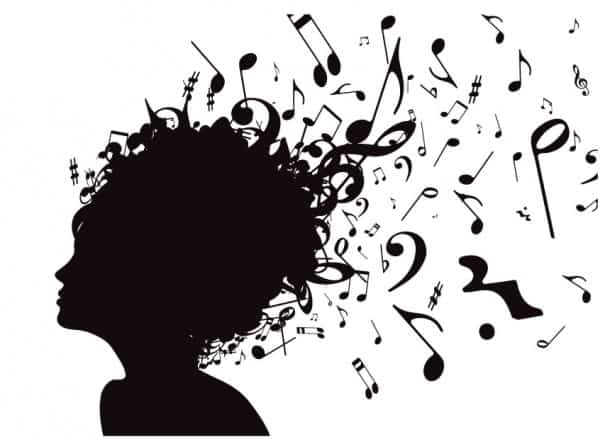Latest News
Health benefits of listening to music

Health benefits
Listening to music is one of the most enjoyable activities we can do. Music makes us feel, revive others, dream, think, catharsis, create, enjoy, and even help us connect with others. Obviously this is a very useful activity, but let’s see below how it lists all the good things we can do.
Listening to music is effective in relieving pain
- Slow music slows down your breathing and heart rate so you don’t feel pain.
- It reduces chronic pain due to various pain conditions such as osteoarthritis and arthritis. In fact, music therapy is part of a treatment program for these types of patients.
- Helps people with migraines in general. This study, published in the journal Ene in 2016, helps reduce the severity and duration of chronic headaches.
- Therefore, music therapy is commonly used in hospitals for the following purposes:
- Reduces the need for ation cushions during labor.
- Reduce postoperative pain.
- Supplement the use of anesthesia during surgery.
This happens because the music acts as a distraction, it gives you a sense of control and the body releases endorphins to deal with the pain.
Reduces blood pressure
By listening to relaxing music in the morning and afternoon, people with high blood pressure can lower their blood pressure and lower it. This comes from a 2003 study published in the Cuban Journal of Psychology.
Speed of recovery after stroke
As ulates from the Avila 2014 study, the daily dose of your favorite song can recover from bleeding and paralysis wasting.
When paralyzed patients listen to music for several hours every day, they often improve their oral memory and alertness.
Increase immunity
Scientists explain that music can create a deep and positive emotional experience that leads to the secretion of immunostimulatory hormones. It also helps reduce the risk factors for the disease.
Similarly, listening to music can also lower the stress-related hormone cortisol levels. High cortisol levels reduce the immune response.
Music brings about an increase in several hormones: serotonin, dopamine, and oxytocin.
Improves memory and learning performance
Listening to music or playing an instrument will help you learn.
For Mozart and Baroque music, they activate the left and right brains. Simultaneous left and right brain movements enhance learning and information retention.
On the other hand, music activates the left hemisphere and music activates the right hemisphere of the brain.
In addition, activities for both sides of the brain, such as playing and playing musical instruments, improve the brain’s ability to process information.
Improves concentration and focus
As Tobar explained in his 2013 Revista Education Axion article, relaxing music improves the duration and focus of your concentration. Furthermore, it occurs at all ages and skill levels.
Improves body movement and coordination
Ultimately, music reduces muscle tension and movement, improving coordination. It plays an important role in the development, maintenance, and recovery of physical activity in the rehabilitation of people with movement disorders.
In short, music is a cultural phenomenon that directly affects our mood. Listening to music has been successful in activating parts of the brain that are beneficial to our health. Finally, it allows us to release endorphins and is always good.

What benefits does music have for our health?
Listening to concerts stimulates various brain activities and stimuli that directly affect important aspects of life, such as mood, stress management, anxiety, and fatigue. In fact, more and more hospitals incorporate music therapy into more therapies. So, to commemorate International Music Day, Albert Okano, the head of healthcare at the insurance company Aygon, explored the major health benefits that music can bring to you.
Reduce anxiety: Listening to your favorite songs can reduce anxiety. Music helps reduce the stress-related hormone cortisol.
It helps to relieve pain: Music therapy leads to the release of endorphins, which can be used as natural painkillers. In fact, many studies have shown that music can alleviate the pain of certain chronic diseases such as osteoarthritis.
Help treat neurological diseases such as all Zimmerman, Parkinson’s, and autism. Music is like a gymnasium in the brain because it enhances neuronal communication, elasticity, and organ plasticity.
Enhance immunity. It can increase platelet production, stimulate lymphocytes, and provide cell protection against certain diseases. Similarly, listening to music can reduce cortisol levels and reduce immune response.
Improve optimism and protect the brain from aging. Especially for people with depression. According to a study published in Frontiers of Human Neuroscience, playing a musical instrument can reduce the effects of age-related decline in intelligence.
Increase memory: Listening to music can activate different areas of the brain to better process information. Numerous reports confirm that listening to and playing music can improve learning. Therefore, according to research published by scientists at the University of Helsinki, Mozart’s music can activate the left and right brains, enhancing learning and information retention.
Fighting headaches: Another benefit of listening to music is that it can help people with migraines and headaches due to relaxation and stress.
Lowering blood pressure: A study by the American Hypertension Society of New Orleans shows that listening to 30 minutes of classical music, Celtic music, or music every day can significantly reduce high blood pressure.
Sebastian was born and raised in the busy city of Abbottabad. As a journalist, Saad Mushtaq has contributed to many online publications including the PAK Today and the Huffing Post. In regards to academics, Saad Mushtaq earned a degree in business from the Abbottabad UST, Havelian. Saad Mushtaq follows the money and covers all aspects of emerging tech here at The Hear Up.Thanks










